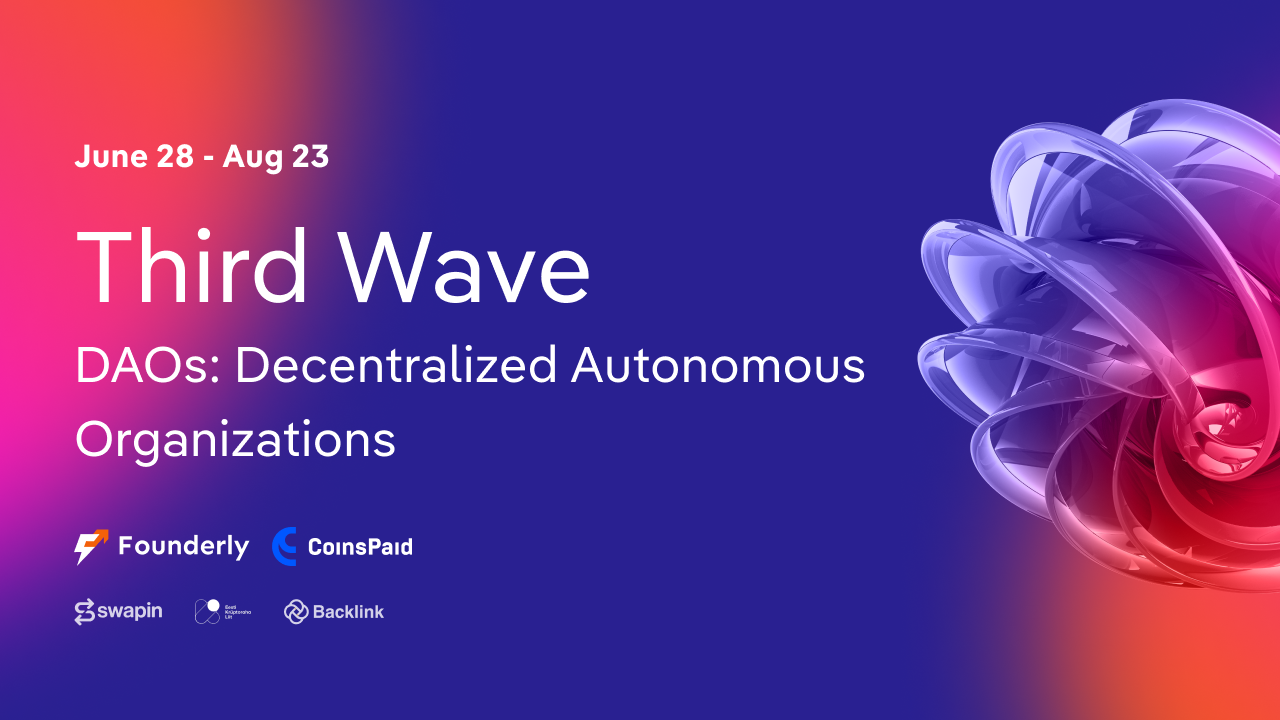DAOs: Decentralized Autonomous Organizations

DAO, explained
In recent years, DAOs—entities that use blockchains, digital assets and related technologies to direct resources and make decisions—have experienced explosive growth.
A DAO is an organization that exists in the digital world, runs autonomously and is not influenced by any central government. The rules are encoded in code, so no managers are needed, thus removing any bureaucratic hurdles.
DeepDAO's analytics show that in 2021, DAOs grew from having $400 million in treasury funds to $16 billion and the number of participants increased from 13,000 to 1.6 million.
DAO Advantages
- Open — Everyone is welcome, and contributions are rewarded
- Inclusive — Stakeholders are brought together through incentives and network design
- Trust-less — Trust is at a minimum when members cooperate
- Scalable — The marginal cost for each additional member is low
- Transparent — All the rules, technology and mechanisms are made public
Here are some no-code/low-code tools you may want to look into.
DAO allows people to form relationships and organizations without knowing each other, and make decisions autonomously by encoding the rules in a blockchain.
During our 9-week program, we had the pleasure to get to know more about DAOs. Investor, co-founder and self-taught crypto expert Ian Lee is one of the pioneers in exploring the potential of digital assets. Through the story of how his startup, Syndicate, came to be, we are introduced to the gradual integration and popularity of crypto into our society which cast the light on the issues of a traditional financial, especially investment-wise, system.
Undemocratically made decisions, high centralization and monopolies in the world of high investment forced the need to create a new system which retains the full power of individuals in the business sphere in which they are investing their assets and these are known as DAOs - Decentralized Autonomous Organizations.